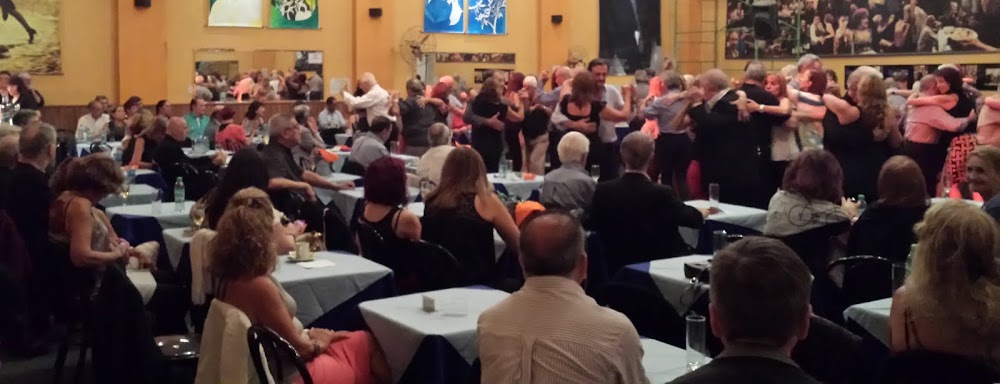Some teachers of tango dance tell students they need to stay in or come back to class because they have or are at risk of bad habits. Or a teacher will tell or imply to the student they need the teacher if they are to dance well. I see that as a deception not dissimilar in some ways from interactions with unscrupulous estate agents, second hand car salesmen, sellers of insurance and extended warranties and similarly notorious professions. We go to those people as non-professionals putting a certain degree of trust, if not necessarily much, in a professional, that they will at least not tell you complete untruths. But besides our scepticism there is a degree of protection in the common knowledge that people often feel or have in the past felt, or know people who have been fleeced by these. We don't have that protection with a tango dance teacher because we tend to know less, hear less about the subject than about those other professions. Yet if you were to go just once a week to tango dance class, spending £10, for a year, taking six weeks off, you'd spend £460. Over five years, at the same price, £2,300. That's not including all the festival workshops or those run by visiting teachers. Many classes and workshops cost well over £10. It doesn't include private lessons either.
Look at the kind of dancing that goes on in a real milonga. Compare it with the sorts of things people are taught in class. I think they bear no relationship and that is why I think there is a deception going on because I think teachers know this. I am in great company (with Ricardo Vidort, with Tete) when I say I don't think the key things about dancing tango can be taught in a class. They may have taught but they taught knew that teaching had limitations and was not the most important thing and I doubt they would ever have emphasised how much students need them - to the detriment of those students' self-esteem. Good teachers like good friends help self esteem grow. They don't undermine it.
Look at the kind of dancing that goes on in a real milonga. Compare it with the sorts of things people are taught in class. I think they bear no relationship and that is why I think there is a deception going on because I think teachers know this. I am in great company (with Ricardo Vidort, with Tete) when I say I don't think the key things about dancing tango can be taught in a class. They may have taught but they taught knew that teaching had limitations and was not the most important thing and I doubt they would ever have emphasised how much students need them - to the detriment of those students' self-esteem. Good teachers like good friends help self esteem grow. They don't undermine it.
The difference with trust and teachers is that people (beginners, children) are especially vulnerable. They put more trust in a teacher than does an adult going to buy something that is notoriously difficult to buy. There is an ethical element implicit in the definition of a teacher so I think there is a moral requirement for a teacher to respect and honour that trust. Teaching is a privilege because of it.
It’s all very well to counter “Anyone who pays for something knows the score”. But that’s just it - beginners do not know the score. In all likelihood they don’t know what real, good social dancing looks like. They don’t know the difference between that and tango shows or performances. They don’t know what they are being taught or its effects. Worse, because of that blind trust they assume that what they are taught is right. They don’t even see the contradiction between being taught a flash move in class and the prohibition - for good reason- of such moves on the floor of a milonga run by - say- that same teacher...
“Well, but if the punters are willing to buy it…”

No comments:
Post a Comment